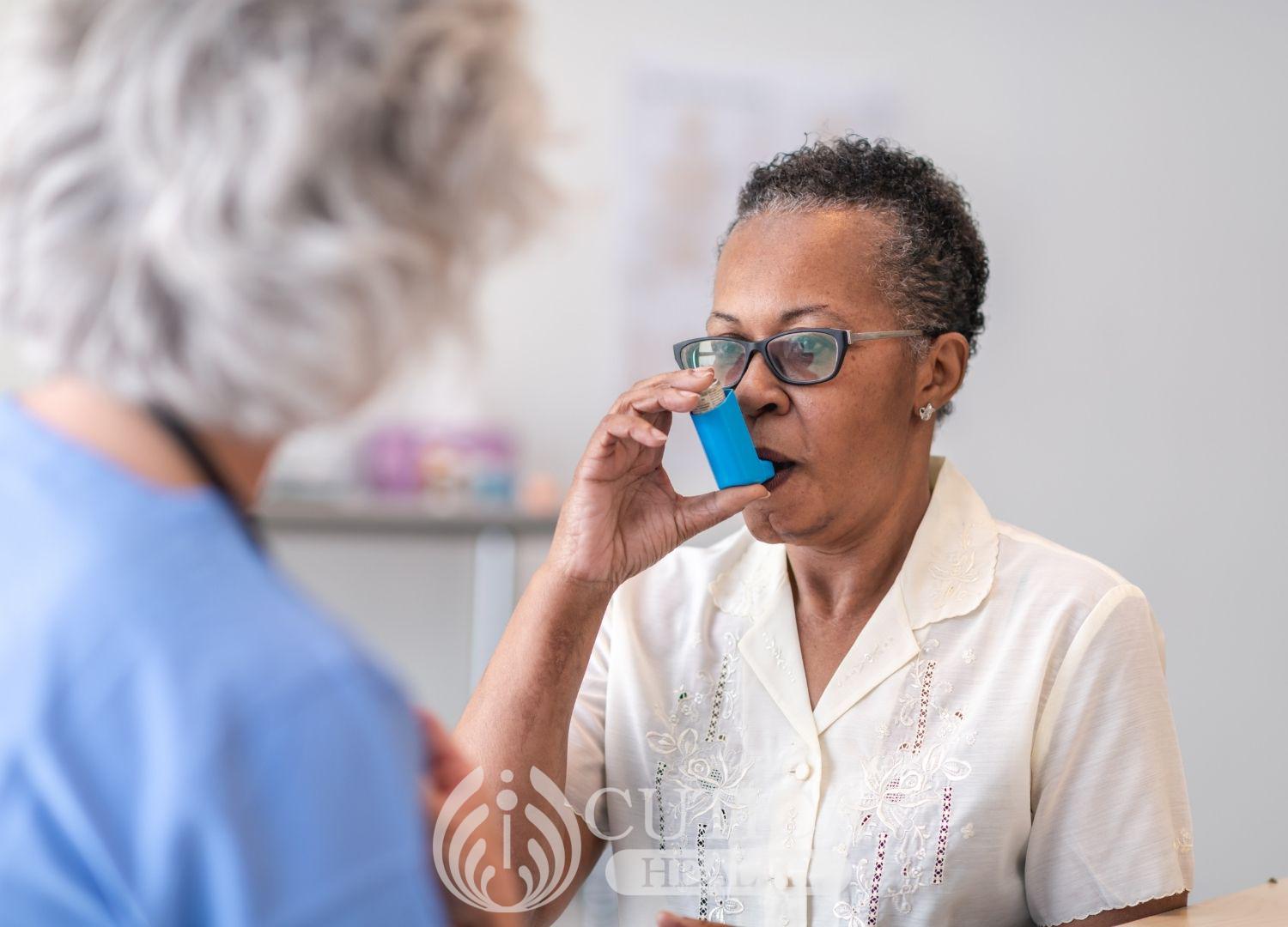
Asthma is a disease of the airways, the pipes through which air passes into the lungs and out. In Asthma, the airways become inflamed, narrowed and then begin to swell and produce extra mucus, which makes it difficult to breathe. It’s a disease that affects both sexes, runs in families and can also arise spontaneously.
Common symptoms of asthma include cough, which can be at night or during exercise. Difficulty breathing could also occur as characterized by wheezing, breathing through the mouth, fast breathing, frequent respiratory infections, rapid breathing, or shortness of breath at night. Other common complaints include chest pressure, flare, anxiety, early awakening, fast heart rate, or throat irritation.

Asthma can be categorised as mild, moderate or severe. Mild asthma means little or no symptoms, which could increase to severe asthma, which comes with an imminent arrest of breathing and death. Some signs that your asthma may be severe and requires emergency response include:
- Severe wheezing when breathing both in and out: Usually this can be so loud that people around the patient can hear it.
- Coughing that won’t stop: This is an exacerbation of the normal cough that asthma patients endure.
- Very rapid breathing: This is a very important sign as that can quickly deteriorate to no breathing at all.
- Chest tightness or pressure: This is due to the ongoing tightening of the airways. You feel like your chest is refusing to relax and allow air in.

- Tightened neck and chest muscles, called retractions: This is because of the use of muscles in these body parts to help in breathing.
- Difficulty talking: This is very common sign once asthma is becoming dangerous. You begin to find it difficult to make a complete sentence.
- Feelings of anxiety or panic: The associated symptoms of an asthmatic attack will cause panic and anxiety evidenced by feeling of fear and impending doom.

- Pale, sweaty face: The body begins to act in response to fear with the fight or flight system activated and resulting response of increased sweating.
- Blue lips or fingernails: This shows that there is reduced oxygenation of the body as the airways are constricted and oxygen is unable to get to the lungs.
- Worsening symptoms despite use of your medications: Usually, asthma symptoms resolve with proper use of medications. But if symptoms persist despite use of the medications, then there is a problem.
Conclusion

Asthma requires regular care by a medical professional and the disease, if not properly treated, can result in death. This, therefore, means you should pay close attention to your symptoms, and seek prompt medical attention when your symptoms get worse or when your drugs don’t resolve them.












